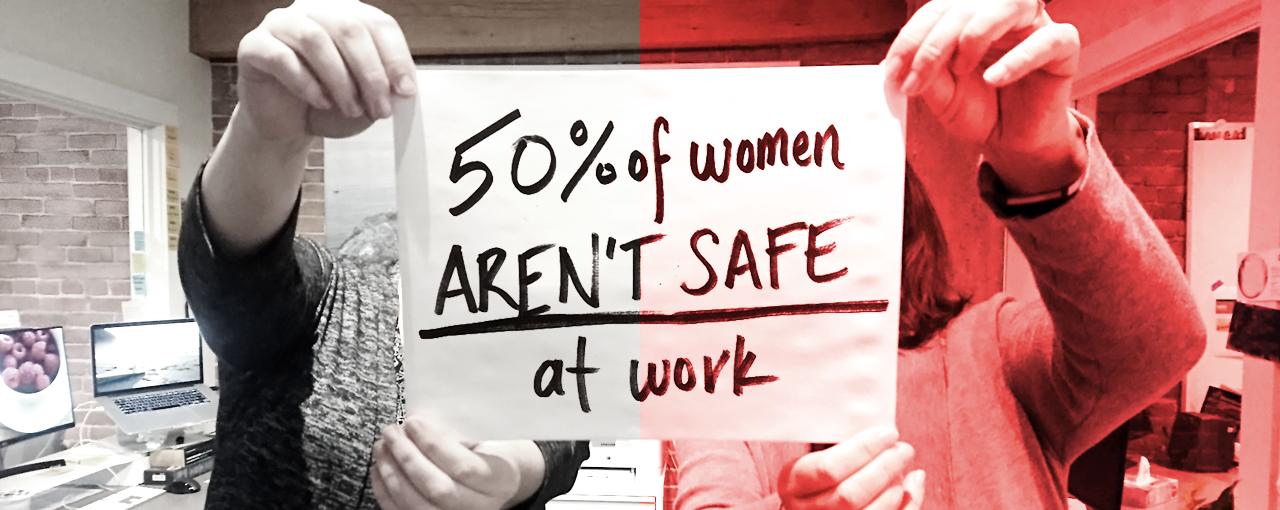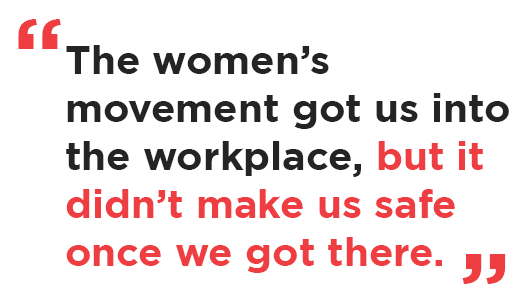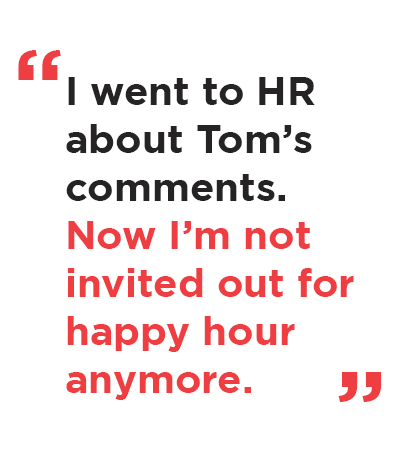
What can you do to prevent sexual harassment in the workplace?
 Everyday sexism continues to exist when no one stands up against it. There are a few things you can do to change the culture of your office for the better:
Everyday sexism continues to exist when no one stands up against it. There are a few things you can do to change the culture of your office for the better:
Speak up.
When it comes to sexual harassment, nothing is worse than silence. The quickest way to deal with it is to call out bad behaviour in the moment; however, there might be times where that approach isn’t possible. If you’re unable to stop the harassment by drawing attention to it, you can still be an ally to your colleague who is being harassed by sitting next to them and offering support if they choose to make a complaint.
Don’t normalize it.
Over time, a toxic culture can make some people complacent about harassment. Take the customer service industry – the worst offender when it comes to sexual harassment in the workplace. As a society, we easily make offhanded comments on servers’ appearances that have no barring on their ability to do a job. Yet rarely do we step in when we overhear or witness a patron harassing his server.
A 2017 study found that when sexual harassment was routinely witnessed, study participants were less likely to step in or even identify the harassment as objectionable. It’s called the Bystander Effect and it could be a problem in your office. Encourage your coworkers and employees to speak up, support them when they do and take steps to ensure they are protected from retaliation when they do.
Pay attention to social interactions.

Does your co-worker look nervous when another employee enters the office?
Are you noticing that someone who reported sexual harassment to HR is being cut out of social activities or meetings? If you see something, say something. Ask your colleague if she is okay, become an ally to the women in your office so that they feel supported if and when they need to report sexual harassment. Stop your coworkers from making sexual and sexist comments with a forthright remark like, “Seriously? People don’t want to hear it.” Above all, keep lines of communication open between employees, management and HR. If workers feel their experience will be heard, they will be more likely to report incidents.
You can read part one of our sexual harassment series here.
The YWCA raises awareness of the effects of violence against women inside and outside of the home. We also fight for reforms and supports that help women make the successful transition to economic independence and to live free from violence and abuse.
See the YWCA Metro Vancouver Stopping the Violence brochure to find other local organizations that provide support for women leaving abuse.
The YWCA offers a range of programs that provide resources for single mothers who leave abusive relationships, from child care to housing and employment services.

